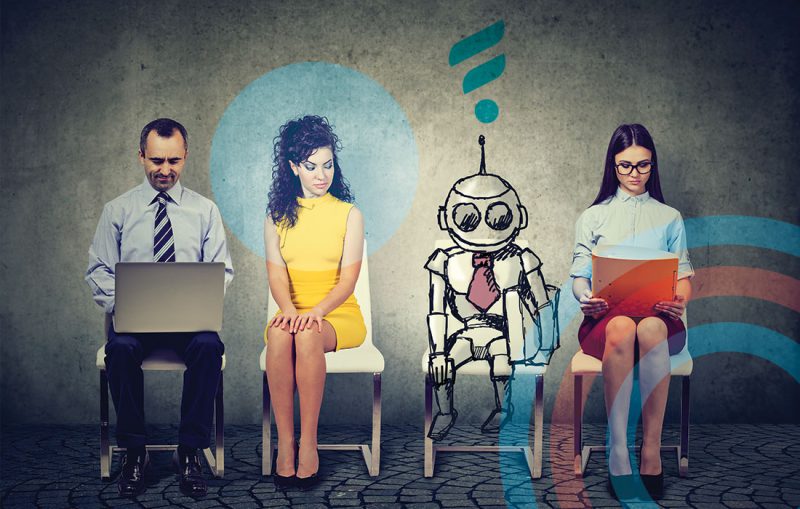
AI and it’s effect on Marketing Performance
How Artificial Intelligence (AI) is leveraging Marketing Performance?
Artificial Intelligence (AI), often used as an expression to describe technology that can replace human intelligence, is now one of the hottest topics across multiple industries. Nowadays, the advertising sector is deeply intrinsic to it.
Many agencies are already aware that some elements of their work might be overtaken or redefined by AI technology. Every day your company postpones using innovative AI-powered solutions in your marketing strategy, you’re losing some competitive edge. It might seem harsh, but it is certainly true.
You’re likely already aware, but many popular products and services are backed by Artificial Intelligence solutions, such as Netflix, Google, Facebook and Amazon. In the past few years, AI has paved its way deeper into marketing, helping many brands to improve each step of the customer sales funnels. Not only that, but these solutions have become more price-sensitive over the last years, enabling smaller businesses to embrace the trend.
AI-powered systems can help advertisers to test, analyse and optimise campaigns based on thousands of data points. Clearly, this is impossible even for the most experienced marketer. In fact, common advertising channels (such as Google and Facebook) don’t give us all the data points required, making our job even more difficult. That’s where AI-powered solutions can go beyond, by providing this information to marketers and collaborating with other data systems (such as CRMs).
1. AI-enhanced PPC advertising
Pay-per-click (PPC) is highly controlled by Google’s algorithm and auction rules. It is no secret that performance here fluctuates throughout a year, a month and even days! PPC is notoriously manual and labour intensive, with dozens of spreadsheets to build and analyse every day. This is where AI can cut out menial tasks, so you can focus on elements that drive revenue and growth.
Let’s look at a basic component – bid. How do you know which bid strategy works? How and when should you update bids? And, the million-dollar question, what is the right bid? This is only one part of the challenge. Then, there is ad copy.
Embedding AI into your most time-consuming processes can significantly reduce the risk of human oversight. The ‘autonomy’ in which marketing automation software operates frees up marketers’ time, reducing the risk of error in what might be a time-consuming and detailed process. A process where humans are liable to make errors – manual data processing for example.
Machine-learning algorithms, when enhanced by rule-based technology, can help agencies and brands to find new ways for optimisation, keywords, bids, landing pages and delivery.
2. AI-powered content creation
Humans subconsciously associate certain images and text with certain emotions. Therefore, we react in certain ways when presented with certain texts or images. We as marketers are tasked with quantifying these associations through testing and data.
AI can take a holistic interpretation of human reactions to numerous pieces of content (the above-mentioned text and images) and is, therefore, able to accurately report on ad performance across varied audiences. The marketer then makes the objective judgement on how to achieve the best results.
3. Highly personalised website experience and better CRO
AI-powered solutions are still not able to build new websites from scratch, but they can certainly enhance the customer web experience with intelligent personalisation and intense design testing. When analysing hundreds of data points like demographics, devices, locations and interests, AI can dynamically change headings, titles, images and website content, so that they are personal to the user.
AI has the ability to personalise and push notifications on your email, improving your email marketing as the right people are targeted with the right emails, at the right time. In a world where that 10 minutes of spare time a customer might have after breakfast is fiercely competed over, dynamically-created content can isolate individual user preferences and give marketers a significant competitive edge.
4. Content-creation chatbots
Since their introduction into mainstream use in 2016, chatbots have proven a great success. If you have used messenger to communicate with a brand or business, chances are that the helpful account manager you thought was called Tom, was in fact a bot.
Intelligent chatbots provide immense support to customer services, adding personalised content that can really push your customer to action. Chatbots are powered by artificial intelligence and have access to millions of customer data points provided by: your CRM software, your internal backend program or an advertising media channel. They can aggregate location and demographic-specific requests and predict the best response or proposed solution for the user. When created and managed properly, chatbots can prove more useful than any human customer service representative.
Working Hand in Hand
Artificial intelligence enables marketers to fulfil a complex dream of engaging with every customer in a meaningful and personalised way. By holding data, applying data processing AI can propose the best solutions for campaign optimisation. It can therefore hit the financial sweet spot existing within each customer journey and improve ROI.
Human beings have limits, but AI is not here to take your job. It is here to support and supplement the modern marketer, by improving their results and beating the competition.
Try Demo – Filed, Marketing Software
Follow us on Instagram for blog updates – Instagram, Filed AI



